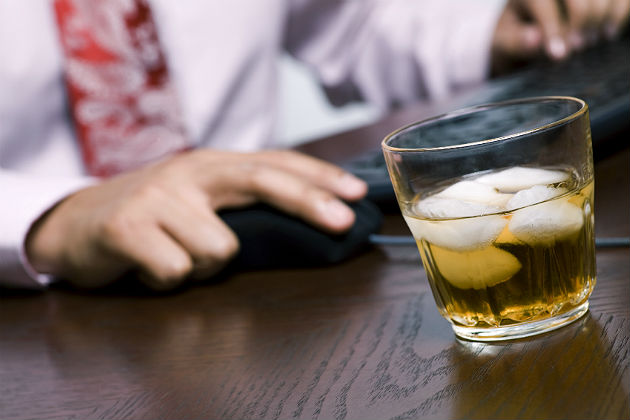Alcohol and anxiety support can be hard to find. That’s why in this read I’d like to make things a little more clear for you during this phase of your life.
Alcohol behaves as a sedative thereby helping to increasingly feel at ease. It may help you to forget your worries and boost your confidence, but these benefits are very short-lived.
Want The Truth?
Intake of alcohol disturbs the chemical balance and varied processes in the brain. The sensation of relaxation that occurs after the first drink is typically triggered by alcohol induced chemical changes in the brain and suppression of the brain area linked to inhibition.
These effects however wear off rapidly and the sensations of pleasantness fade away. Anxiety sufferers who depend on alcohol to hide from their problems may become addicted to alcohol for further relaxation moments.
“In the long-term over drinking can increase your tolerance for alcohol and more and more alcohol will be needed to reach that level of relaxation. Such over drinking patterns can worsen anxiety and trigger worse mental health problems.”
The Alcohol And Anxiety Hangover Cycle
The method used by the body to process alcohol can directly affect the mood. The sedative effects of alcohol slowly wear off as the body processes it which can result in symptoms of alcohol withdrawal which are similar to feelings experienced by alcohol dependent individuals.
Such symptoms can also be psychological, like feeling anxious and depressed. Many people experience such symptoms the morning after a night of over drinking; these are nothing but alcohol withdrawal effects.
Some individuals may not suffer from agitation or anxiety or other alcohol withdrawal effects. But in people who are already dealing with anxiety and alcohol withdrawal, it can certainly worsen the symptoms-Alcohol And Anxiety
The vicious circle of anxiety and alcohol
People who are anxious often tend to think that drinking alcohol can help them relax. This notion is wrong. Drinking alcohol can in fact make the person feel worse. The typical cycle is listed below:
- Anxiety sufferers drink alcohol to relax
- There is an initial sensation of calm as the brain gets affected by alcohol
- As the alcohol gets processed by the body, anxiety may occur as alcohol withdrawal symptoms
- This may cause you to drink again to alleviate the anxiety
- This however causes the above listed process to begin again. As the soothing feeling wears off, anxiety rears its ugly head once again.
Steps to prevent alcohol worsening or causing anxiety
Follow the steps listed below to prevent any adverse effects.. It is best to stop drinking alcohol but in the case where you don’t have a set method that can help you to begin the process, try the following:
Keep a count of the amount of alcohol consumed by you. This will help understand patterns so that triggers can be avoided.
People who are drinking over 14 units of alcohol per week should cut down. In case you think you are dependent on alcohol consult a naturopath to recognize your nutritional deficiencies, decrease cravings for stimulants, or seek help from a great anxiety support group.
Keep cutting down on alcohol intake for 2 or more weeks. As the chemical balance in your brain returns to normalcy, the symptoms of anxiety will improve and there will be better sleep quality.





















I definitely can correlate my anxiety to alcohol in a negative way. I was having a glass of red wine after a particularly tough day last week, hoping it would just sedate me enough to relax a little and enjoy the evening.
Nope. An hour later, I’m panicking and crying. And I certainly think I would have benefitted better from a walk, some reading, a hot bath…. anything other than that stupid glass of wine.
For me, it only acts as a noticeable trigger when I’m in a tough spot (I can still enjoy alcohol in a healthy way at a party, let’s say). But I still haven’t learned to steer clear of it.
Thanks for sharing your experience, always helps others relate when it comes to alcohol and anxiety.